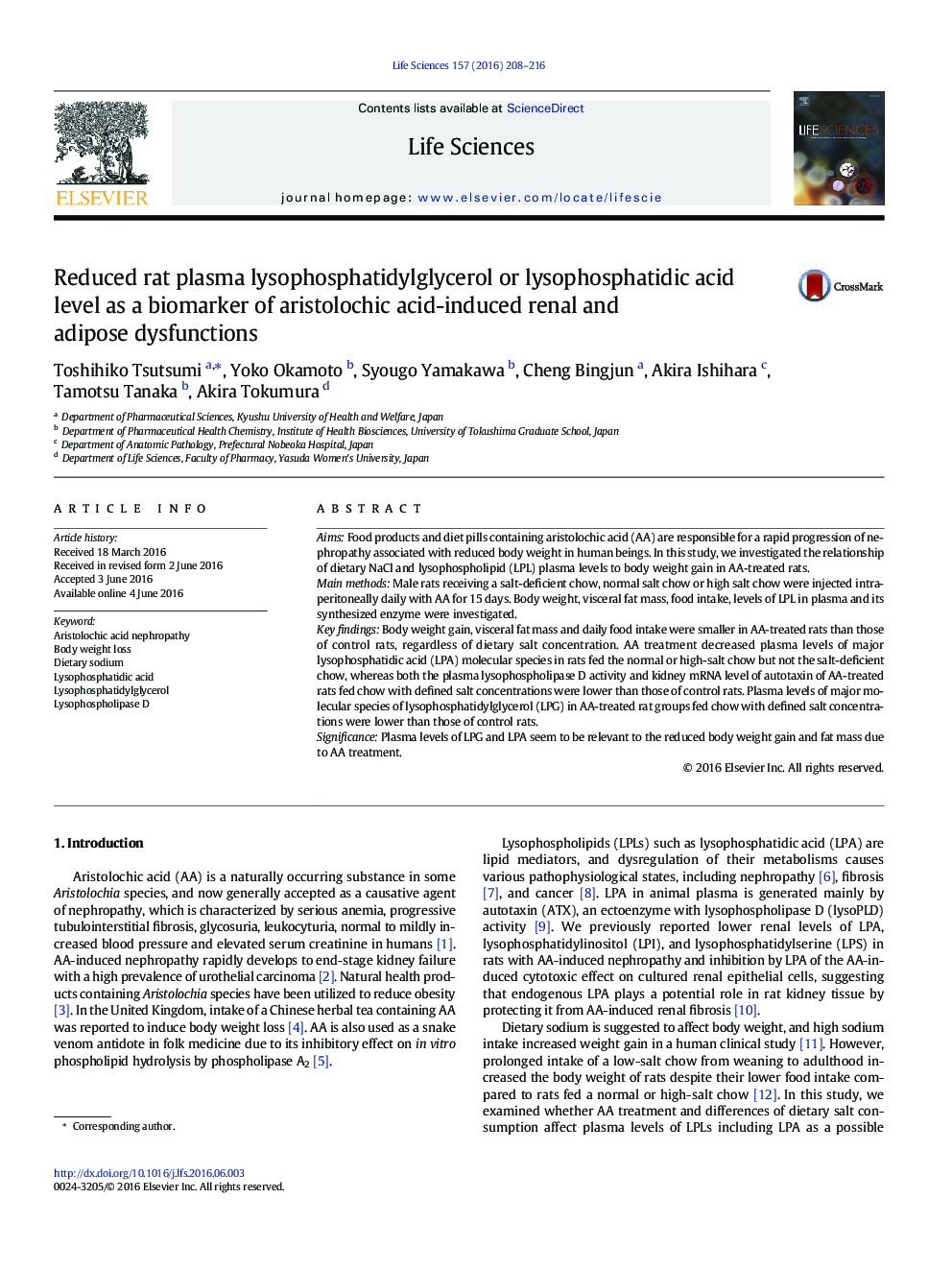| Article ID | Journal | Published Year | Pages | File Type |
|---|---|---|---|---|
| 2550438 | Life Sciences | 2016 | 9 Pages |
AimsFood products and diet pills containing aristolochic acid (AA) are responsible for a rapid progression of nephropathy associated with reduced body weight in human beings. In this study, we investigated the relationship of dietary NaCl and lysophospholipid (LPL) plasma levels to body weight gain in AA-treated rats.Main methodsMale rats receiving a salt-deficient chow, normal salt chow or high salt chow were injected intraperitoneally daily with AA for 15 days. Body weight, visceral fat mass, food intake, levels of LPL in plasma and its synthesized enzyme were investigated.Key findingsBody weight gain, visceral fat mass and daily food intake were smaller in AA-treated rats than those of control rats, regardless of dietary salt concentration. AA treatment decreased plasma levels of major lysophosphatidic acid (LPA) molecular species in rats fed the normal or high-salt chow but not the salt-deficient chow, whereas both the plasma lysophospholipase D activity and kidney mRNA level of autotaxin of AA-treated rats fed chow with defined salt concentrations were lower than those of control rats. Plasma levels of major molecular species of lysophosphatidylglycerol (LPG) in AA-treated rat groups fed chow with defined salt concentrations were lower than those of control rats.SignificancePlasma levels of LPG and LPA seem to be relevant to the reduced body weight gain and fat mass due to AA treatment.
